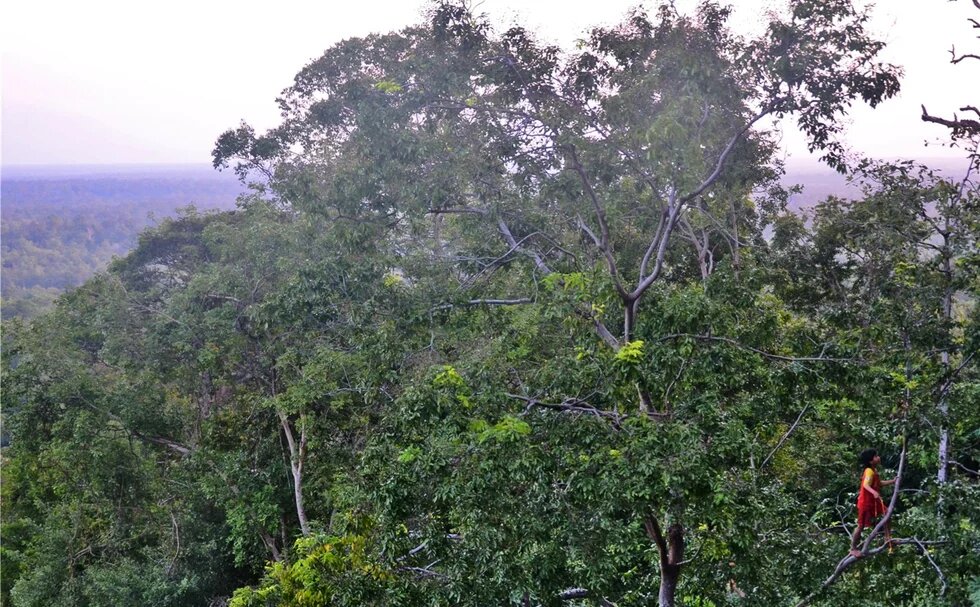
The United Nations’ sustainable development goals (SDGs) unequivocally call for “urgent action to combat climate change and its impacts.” Cambodia has committed to implementing the SDGs and has, so far, allocated 1.7% of available resources in 2023 to achieve the climate action goal, according to the United Nations.

This United Nation’s clarion call is for everyone to do their part in reducing the destruction of natural resources and the environment, and especially targets young people who have the most to lose from the devastating impacts of climate change.
This objective fits squarely with the youth engagement activities of Phnom Penh-based Impact Hub, which has created a sustainable and innovative ecosystem of startups, entrepreneurship and youth leadership. Impact Hub helps young people advocate for better policies, makes literature on these subjects more accessible to Cambodians and organizes events that bring diverse people together.
(Photo Credit: Impact Hub)
Huon Pengsan, who works as a talent activation manager at Impact Hub, resonates with the need for action to combat climate change and founded the Cambodian chapter of Climate Action Week. While it started slowly, mostly due to the Covid-19 pandemic, momentum around the movement has picked up speed and Climate Action Week events were organized with Impact Hub in Siem Reap and Battambang.
“It functions as a platform for a lot of people to come together, share ideas, connect with others and not just worry about the issues at hand,” Pengsan says.
Pengsan feels a lot of advocacy on the environment centers around a few issues, like plastic use and waste disposal, and that young people need to think about the multitude of impacts faced by people from climate change.
“Education-wise we need more content and a proper implementation plan. As citizens we are not informed about what's in store for us in terms of Cambodia's response to climate change,” Pengsan says.
Ut Chantarapeach, who is a space and sustainable operations officer at Impact Hub, said there was need for increased clarity on how the country was going to deal with climate change.
“I am hoping to see more changes in industries and tourism in the next five years. If there is no clear policy, how can industries comply?” Chantarapeach says.
This article is an excerpt from "Profiles of Courage." Click here for the full reading.
